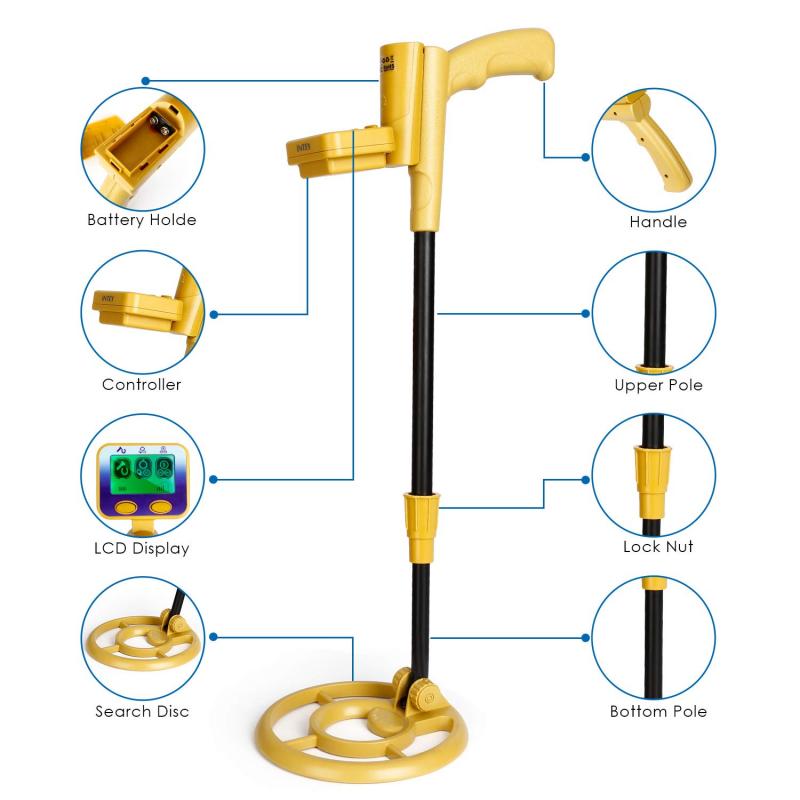How To Hide Phone From Metal Detector?
In today's world, metal detectors are commonly used in various settings such as airports, schools, and public events to ensure safety and security. However, there are instances where individuals may seek to hide their phones from metal detectors for privacy reasons or to avoid confiscation in restricted areas. While it is important to respect rules and regulations, understanding the principles behind metal detectors and exploring potential methods to conceal a phone can be useful knowledge. This article will delve into the science of metal detectors, discuss various techniques people might consider to hide their phones, and address the ethical implications of such actions.
Understanding Metal Detectors

Metal detectors operate based on the principle of electromagnetic induction. They consist of a coil of wire through which an electric current is passed, creating a magnetic field. When a metal object comes into proximity with this magnetic field, it induces an electric current in the metal object, which in turn creates its own magnetic field. The metal detector senses this secondary magnetic field and triggers an alarm.
There are two main types of metal detectors: walk-through and handheld. Walk-through metal detectors are commonly used at security checkpoints and create a vertical magnetic field that scans the entire body. Handheld metal detectors, on the other hand, are used for more targeted searches and can be maneuvered around specific areas of the body or belongings.
Techniques to Hide a Phone from Metal Detectors

1. Use of Non-Metallic Cases:
One of the simplest methods to reduce the detectability of a phone is to use a non-metallic case. Many modern phone cases are made from materials like plastic, silicone, or rubber, which do not trigger metal detectors. However, this method is not foolproof as the phone itself contains metal components.
2. Shielding with Metal-Absorbing Materials:
Certain materials, such as ferrite or mu-metal, can absorb or redirect magnetic fields. Wrapping a phone in these materials can potentially reduce its detectability. However, these materials are not commonly available and can be expensive.
3. Placement in Non-Metallic Containers:
Placing a phone inside a non-metallic container, such as a plastic bag or a hollowed-out book, can sometimes help in evading detection. The idea is to create a barrier between the phone and the metal detector's magnetic field. However, this method is not always reliable, especially with advanced metal detectors.
4. Utilizing Distraction Techniques:
Another approach is to use distraction techniques. For example, carrying multiple metallic objects can create a cluttered signal, making it harder for the metal detector to isolate the phone. However, this method is risky and can lead to further scrutiny from security personnel.
5. Exploiting Blind Spots:
Metal detectors have certain blind spots, usually at the edges of the scanning area. By carefully positioning the phone in these areas, it may be possible to avoid detection. However, this requires precise knowledge of the metal detector's design and is not always feasible.
Ethical Considerations

While the above techniques may provide insights into how one might attempt to hide a phone from a metal detector, it is crucial to consider the ethical implications. Metal detectors are in place to ensure safety and security. Attempting to bypass these measures can lead to serious consequences, including legal repercussions and endangering public safety.
1. Respecting Rules and Regulations:
It is important to respect the rules and regulations of any facility or event. If phones are not allowed, there is usually a valid reason, such as preventing distractions, protecting sensitive information, or ensuring safety.
2. Potential Consequences:
Getting caught attempting to hide a phone can result in confiscation, fines, or even arrest. It can also lead to being banned from certain places or events. The potential consequences often outweigh the benefits of attempting to conceal a phone.
3. Public Safety:
Metal detectors are often used in places where security is a top priority, such as airports and government buildings. Attempting to bypass these security measures can compromise public safety and put others at risk.
Practical Alternatives

Instead of attempting to hide a phone from a metal detector, consider the following practical alternatives:
1. Compliance:
The simplest and most ethical approach is to comply with the rules. If phones are not allowed, leave them at home or in a designated safe area.
2. Communication:
If you have a legitimate reason for needing your phone, communicate with the authorities or organizers. They may provide a solution or make an exception.
3. Use of Secure Storage:
Many facilities offer secure storage options for prohibited items. Utilize these services to safely store your phone while you are in the restricted area.
4. Alternative Devices:
If you need to stay connected, consider using alternative devices that are allowed, such as smartwatches or other wearable technology that can perform basic communication functions.
While there are various techniques that people might consider to hide a phone from a metal detector, it is important to weigh the ethical implications and potential consequences. Metal detectors play a crucial role in maintaining safety and security in many settings. Instead of attempting to bypass these measures, consider practical and ethical alternatives. Compliance with rules and regulations not only ensures your safety but also contributes to the overall security of the community.



















There are no comments for this blog.